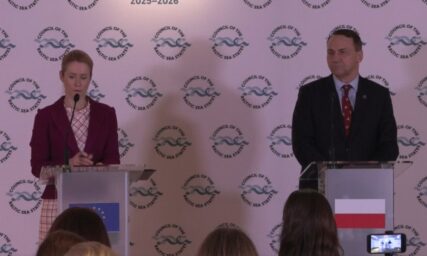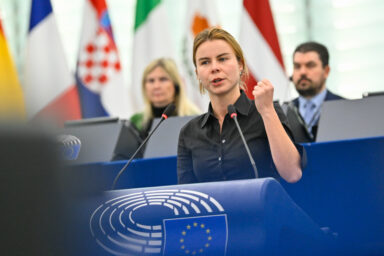The European Defence Industry Programme (EDIP) received expected backing in the European Parliament on Tuesday, marking a significant step towards a more integrated, better-resourced and strategically autonomous Europe. More than three years into Russia’s full-scale war against Ukraine, the legislation is widely viewed as overdue but essential shifting Europe from fragmented national procurement towards a collective industrial strategy.
Tuesday’s vote followed a political agreement reached with the Council in mid-October. With the first reading now complete, the regulation moves to final Council endorsement before entering into force. If adopted, the EU will — for the first time — establish a common framework to support joint procurement, reinforce manufacturing capacity and secure cross-border supply during crises.
The vote — 457 in favour, 148 against, 33 abstentions — shows a broad consensus that Europe must become more capable, more united and far quicker at producing the equipment it needs, and that collective action is both more economical and more strategic than fragmented national efforts.
Ukraine defence in line with the EU’s
A €1.5bn budget is set for 2025–27, including dedicated funding to bring Ukraine’s defence industry closer to Europe’s. The regulation also embeds a “buy European” requirement, setting a minimum of 65 per cent EU- or associated-country components for defence projects receiving support. The aim is to strengthen Europe’s sovereignty and reduce dependence on overstretched third-country suppliers.
Within this framework, €300m goes to the Ukraine Support Instrument, and the additional FAST instrument channels further contributions to strengthen supply chains. Parliament also secures extra resources through the SAFE instrument and ensures that member states can redirect unspent RRF funds to EDIP-related projects. Lawmakers also tighten component sourcing rules so that parts from non-associated third countries stay capped at 35 per cent of total component costs. It is better than never, and Europe can only benefit by sticking to a collective defence approach.
You might be interested
Paradigm shift
One of the co-rapporteurs, François-Xavier Bellamy (EPP/FRA), co-rapporteur in the Industry Committee, indicated the programme represented an important shift in thinking, while Marie-Agnes Strack-Zimmermann (Renew/DEU), Chair of the Security and Defence Committee, also underlined its significance:
“The European Defence Industry Programme marks an important step towards a more efficient, faster and genuinely European approach to defence procurement and strengthening European defence capabilities. It is designed to have a lasting impact, serving as a reference point for future initiatives and shaping the way European cooperation in defence production is organised beyond 2027.”
Truly European
Raphaël Glucksmann (S&D/FRA), co-rapporteur in the Defence Committee, stated:
“EDIP is the first EU defence instrument that is truly European. In the face of Russia’s full-scale war against our neighbour and repeated attacks against our own countries, we need to reinforce our common defence systems and ramp up our defence capabilities collectively.”
François-Xavier Bellamy added:
“This programme represents a major step forward for the security of the European continent and the development of our defence industry… enabling us to ensure autonomously that our armed forces have the means to fulfil their mission.”
Despite broad support, critics argue that the ambitions remain larger than the resources available. Lawmakers like Latvian MEP Rihards Kols (ECR) argued on Tuesday that there was still not nearly enough money in the pot, charging that the EU was budgeting as if “nothing had changed”. Critics point to a funding envelope too small to reshape Europe’s industrial landscape or change persistent national protectionism that could complicate joint procurement. Other war of the technical and commercial challenges of incorporating Ukraine into European supply chains. Without sustained long-term commitment from member states, the worry is that EDIP risks becoming another instrument with intentions that exceed its scale.
Now more than ever
Even so, the political context leaves little doubt about the urgency of shoring up defence and defence procurement. Russia’s continued aggression, spilling more and more often into EU countries in the form of drone incursions and other provocations, have accelerated the push for a stronger European defence base, as has the ongoing need to support Ukraine,
If endorsed by member states, the Commission will move quickly to implement EDIP: issuing project calls, creating procurement structures and starting cooperation with Ukrainian partners.











